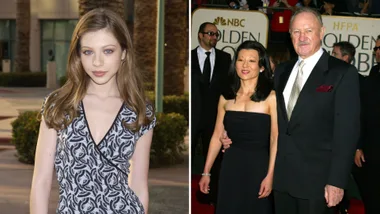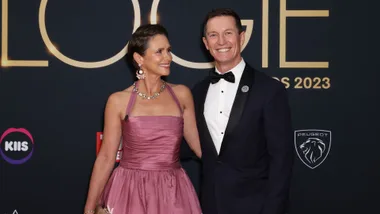Hollywood has anointed human growth hormone as the latest anti-ageing miracle drug and some local doctors say it’s enjoying a rise in popularity here. Yet, as Susan Horsburgh reports, is it the elixir of youth or a risky waste of money?
Once the domain of the dodgy athlete or the bodybuilder resembling a bag of marbles, HGH has found favour in recent years among ageing celebrities desperate to reset the clock.
Described as “the love child of Viagra and Botox”, it is said to reduce body fat and build lean muscle mass, smooth wrinkles and boost libido, so it’s no surprise that Hollywood is reportedly mad for it. In a town that worships the holy trinity of youth, beauty and sex appeal, the so-called miracle drug has hit the bullseye of its target market.
HGH, the hormone that stimulates growth and cell reproduction, is naturally produced in the pituitary gland, with levels peaking during adolescence and gradually declining as we age.
The reasoning goes that, if you top up a 50-year-old’s growth hormone level with synthesised HGH so it’s equal to that of a 30-year-old, the patient will regain the health, energy and libido they had then.
HGH, or Somatropin, is registered by the Therapeutic Goods Administration for use in children with growth disorders and adult s with severe growth hormone deficientcy. It is not approved as an anti-ageing agent, but it can be prescribed “off-label” for genuine medical reasons.
Possession is illegal without a valid prescription and importing HGH into the country is prohibited.
If it seems inconceivable that the muscle-paralysing injectable drug that has been the subject of professional misconduct cases and centre of a reportedly booming black market, will catch on in Australia, remember Australia was slow to catch on to Botox, too — and now it’s the most common cosmetic procedure in the country.
As one talent manager told Vanity Fair last year, “Any actor over 50 you’re still seeing with a ripped stomach and veins in his forearms is probably taking HGH.”
There is a litany of health risks and international HGH expert Professor Ken Ho labels it “snake oil for people who are dissatisfied with their lives”, but in Hollywood — where insecurity is an epidemic — the warnings seem to hold little sway.
Actor Nick Nolte and director Oliver Stone have sung its praises, Sylvester Stallone said “everyone over 40” should try it, and rumour has is that the age-defying Demi Moore, Jennifer Aniston and Madonna have had HGH injections, too.
It’s had some bad press of late with disgraced cycling legend Lance Armstrong admitted to taking HGH and, closer to home, the Australian Crime Commission’s report into drugs in sport revealed the widespread use of growth hormone-releasing peptides, which stimulate natural HGH production and are more difficult to detect than injected HGH.
But disciples of the drug sing its praises loudly. “Dr Ces”, as he’s known, was introduced to HGH as an anti-ageing treatment a decade ago, when he was practising on London’s Harley Street, treating celebrities and moonlighting on TV makeover shows.
Famous actors, he says, were using HGH to remember their lines, feel more energetic and rejuvenate their skin. According to Dr Ces, if HGH isn’t the fountain of youth, it’s “about as close to it as you’re going to get”.
He explains all on his mindboggling website, which features what appear to be topless Roman goddesses and shiny pictures of himself with his shirt unbuttoned just north of his navel and breast implants perched on his desk.
In an extensive list of “massive” HGH benefits, he tells potential patients they can expect fat loss without dieting and muscle-mass increase without exercise, not to mention “enhanced sexual performance”, “elimination of cellulite” and “younger, thicker skin”. Who wouldn’t want to get on board?
But with daily injections costing about $5000 a year and coming with a myriad of side effects from joint and muscle pain to a heightened risk of diabetes and possible cancer, experts like leading endocrinologist Ken Ho who has studied HGH for 35 years say the drugs perceived benefits a “mischievous and exploitative” assumption, based on “a lot of slipper science”.
“What a lot of people are being sold is a placebo effect,” he says, “because, if you are paying for something which is expensive and coming through the hands of a purported guru, there’s an expectation.”
Read more of this story in the March issue of The Australian Women’s Weekly.












